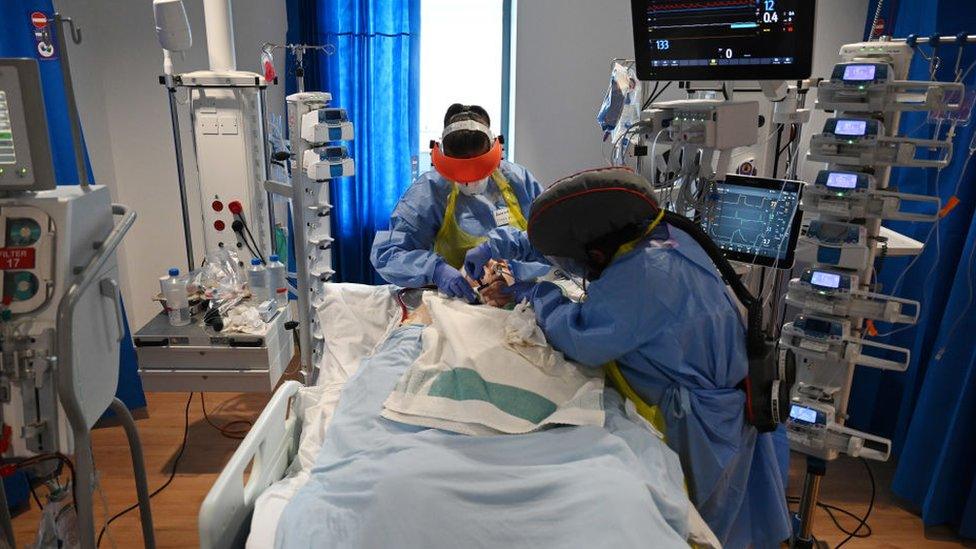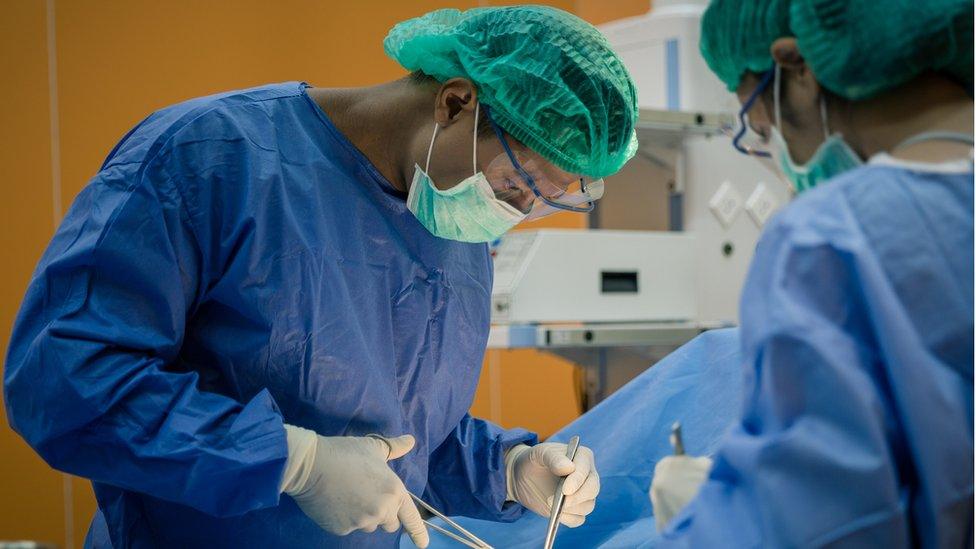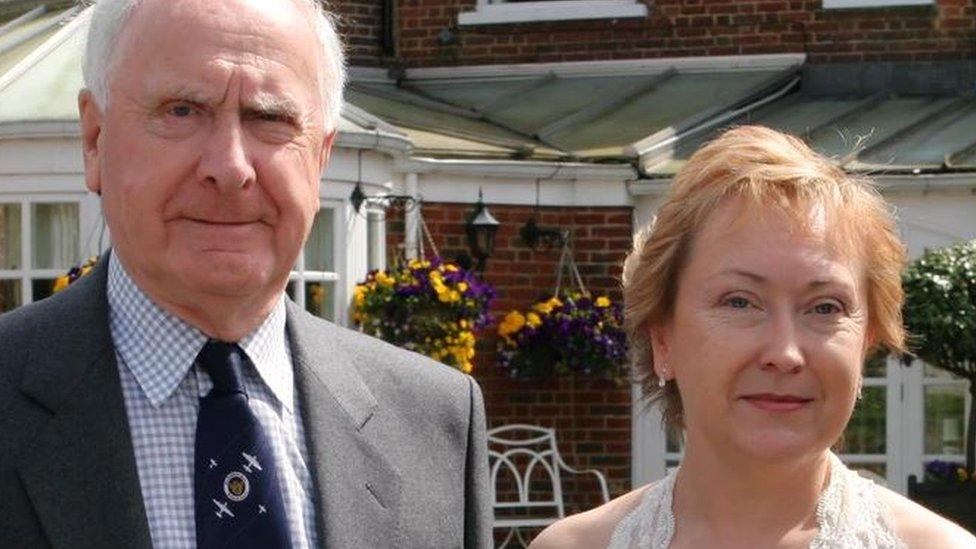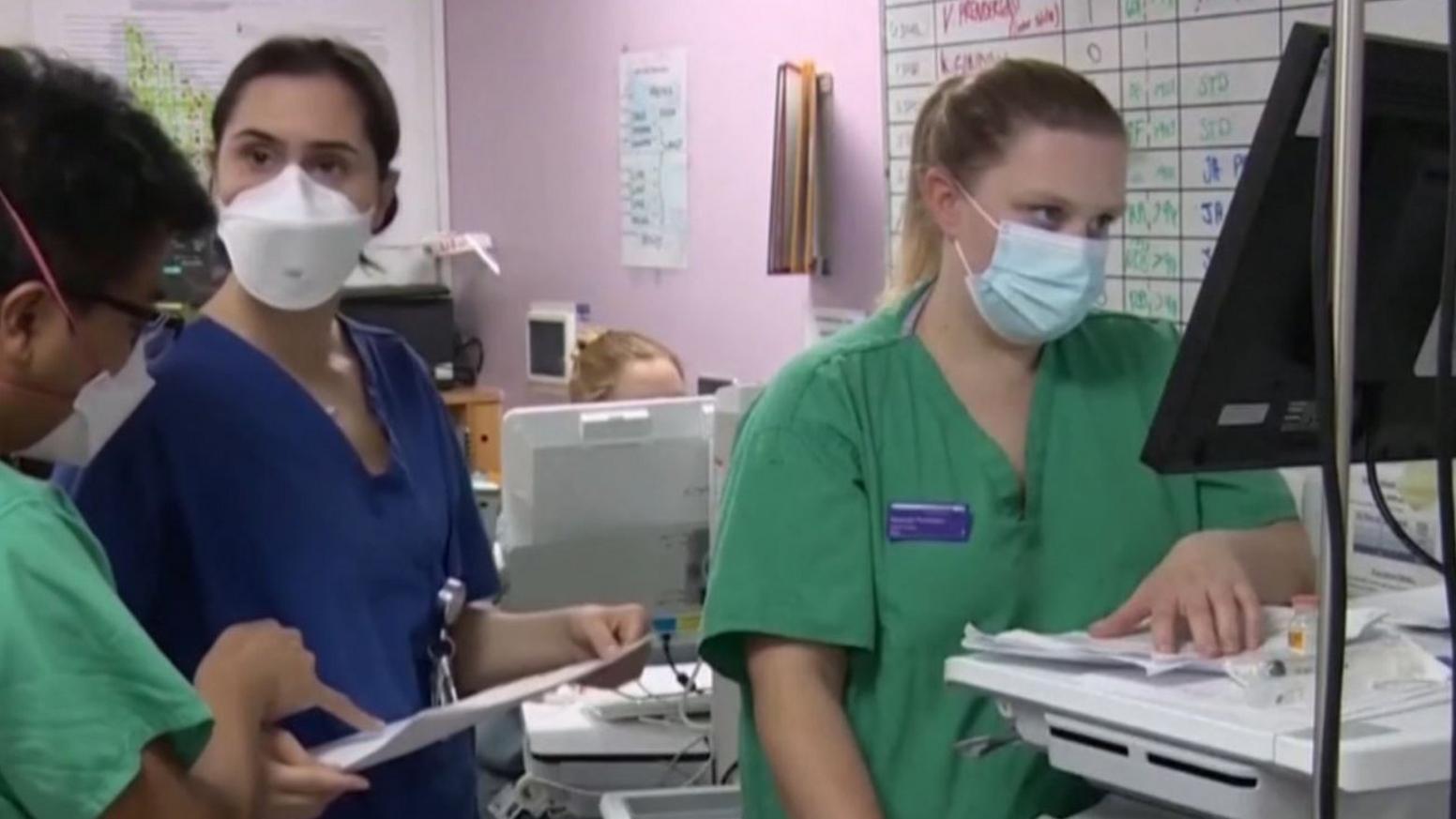Covid-19: Protect us from unlawful killing charges - medics
- Published

Doctors and nurses need protection from prosecution over Covid-19 treatment decisions made under the pressures of the pandemic, medical bodies have said.
Groups including the British Medical Association have written to ministers saying medical workers fear they could be at risk of unlawful killing charges.
It comes as the UK's chief medical officers said the NHS could be overwhelmed in weeks.
The government said staff should not have to fear legal action.
The letter from the health organisations points out that the prime minister warned in November that the NHS being overwhelmed would be a "medical and moral disaster", where "doctors and nurses could be forced to choose which patients to treat, who would live and who would die".
It said: "With the chief medical officers now determining that there is a material risk of the NHS being overwhelmed within weeks, our members are worried that not only do they face being put in this position but also that they could subsequently be vulnerable to a criminal investigation by the police."
Co-ordinated by the Medical Protection Society (MPS), the letter was signed by the British Medical Association, the Doctors' Association UK, the Hospital Consultants and Specialists Association, the Royal College of Surgeons of Edinburgh, the British Association of Physicians of Indian Origin and Medical Defence Shield.
It calls for emergency legislation to protect doctors and nurses from "inappropriate" legal action when dealing with circumstances outside their control.
Existing guidance for doctors and nurses on when to administer or withdraw treatment does not give legal protection, the letter says.
It also says the guidance does not consider the circumstances of the pandemic where demand for healthcare may outstrip supply.
"The first concern of a doctor is their patients and providing the highest standard of care at all times," the medical bodies said.
"We do not believe it is right that healthcare professionals should suffer from the moral injury and long-term psychological damage that could result from having to make decisions on how limited resources are allocated, while at the same time being left vulnerable to the risk of prosecution for unlawful killing."
What does it mean if the NHS is overwhelmed?
The medical organisations said no healthcare professional should be "above the law" and that the emergency legislation should only apply to decisions made "in good faith" and "in circumstances beyond their control and in compliance with relevant guidance".
They said the change in the law should be temporary and should apply retrospectively from the start of the pandemic.
Medical staff in the NHS are protected financially from clinical negligence claims by indemnity schemes where the state pays the costs of claims.
But if someone dies as a result of a lack of treatment, doctors and nurses fear prosecutors could bring charges such as gross negligence manslaughter, which can carry a maximum sentence of life imprisonment.

LOOK-UP TOOL: How many cases in your area?
LOCKDOWN LOOK-UP: The rules in your area
TESTING: How do I get a virus test?

Earlier this month, a survey by the MPS of 2,420 of its members found that 61% were concerned about facing an investigation following a decision made in a high-pressure situation.
About 36% were concerned about being investigated for a decision to withdraw or withhold life-prolonging treatment due to pressure on resources during the pandemic.
A Department of Health and Social Care spokesman said: "Dedicated frontline NHS staff should be able to focus on treating patients and saving lives during the pandemic without fear of legal action."
NHS staff have been told that existing indemnity arrangements will continue and will cover "the vast majority of liabilities", the spokesman said.

RUPAUL'S DRAG RACE UK: Mama Ru's back with 12 fabulous drag queens. Who gets the crown?
DEATH IN BOLLYWOOD: How did Jiah Khan die? For her British family, the truth about her death still hasn’t come out

Related topics
- Published14 January 2021

- Published12 June 2020

- Published11 January 2021
